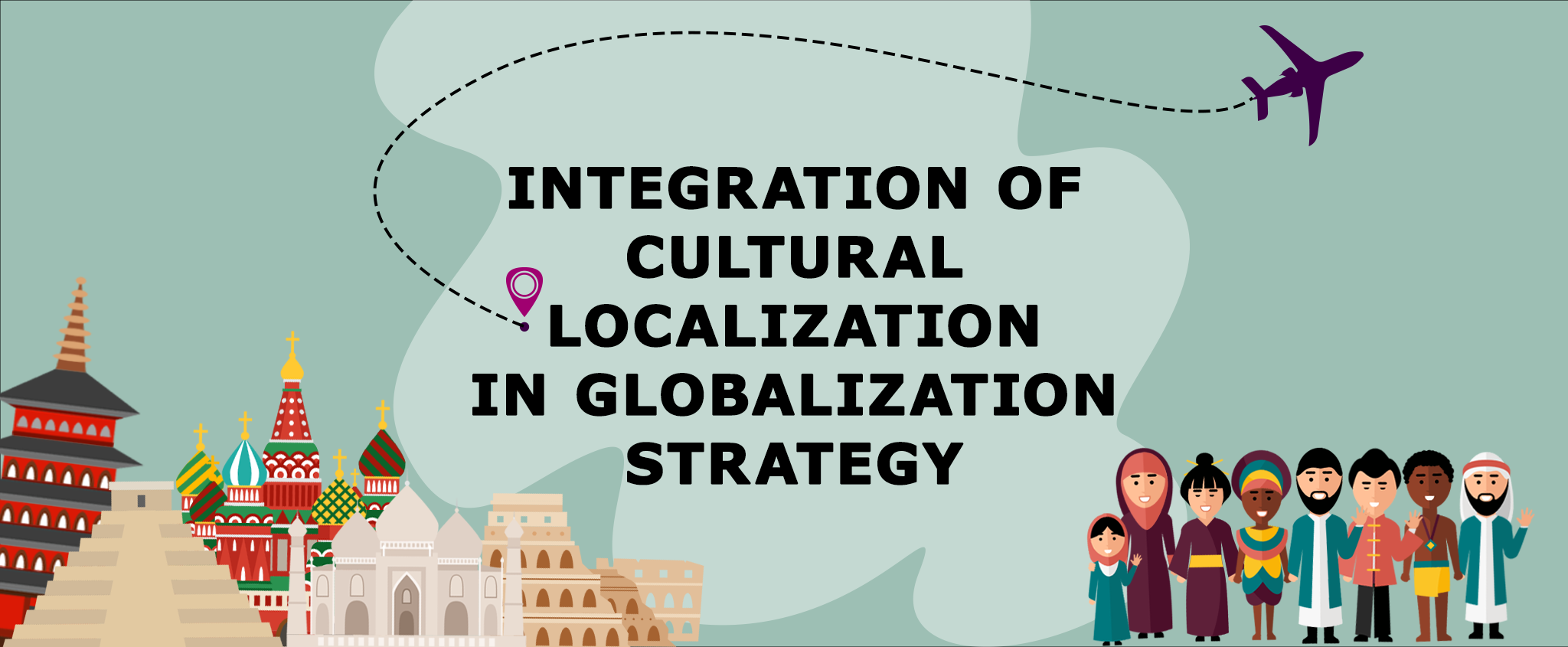Integration of Cultural Localization in Globalization Strategy
As a business owner, you’ve probably heard the terms “localization” and “globalization” many times. Of course, the two mean so much in the success of different industries. Businesses localize their products, services, and content to reach global markets. While it’s easy to confuse them, cultural localization is a key component of any successful globalization strategy.
Cultural localization helps businesses bridge cultural divides to reach customers in different countries. Yes, if you want to globalize, you must localize. But how do the two exactly work together? And how do you successfully localize your content for different markets? Let’s take a deep dive into the integration of cultural localization into globalization strategy.
Key Takeaways:
- Cultural localization is adapting a product or service to different countries’ cultures and customs. It goes beyond words and looks at visual elements, music, layout design, colors, and more.
- Globalization of culture is sharing global ideas and values to extend and intensify societal relations. It’s beneficial for businesses because it helps them reach customers in different countries.
- Every global localization strategy needs to consider the different cultures of the target market. Localization is the key to the door of globalization, bridging the gap between cultures to create a unified user experience.
- Holidays localization is one excellent tool to target customers in different countries effectively. Businesses can connect with potential clients during the most meaningful times of the year, increasing brand recognition and lead generation.
Table of Contents:
- What is Cultural Localization?
- Why is It Important?
- How to Do Cultural Localization
- The Role of Cultural Localization Integration in Business Globalization
- Integrating Cultural Localization in Globalization Strategy
- CCCI – Professional Localization Company
What is Cultural Localization?
Cultural localization is adapting a product or service to different countries’ cultures, customs, and even holidays. The process focuses on the target culture instead of sticking to the original text. Unlike translation, localization shines the light on culture, taste, history, tone, and customs because they’re as just critical as language.
You use localization to adapt currencies, measurement units, dates, and times. Even fonts and capitalization must be localized based on the target culture! The process ensures that your product or service adheres to the standards of different countries. It tailors your business according to the unique cultural norms. As a result, you speak to people in their own language and create an emotional connection.
Note: Localization is most common in creative industries like advertising, e-commerce, media, and marketing. It’s also in the entertainment industry, particularly in comics, manga, and gaming.
The process involves translation, but it also includes changes to other elements. For example, a character’s terms in a game can be changed to match the target culture. You go beyond words and look at visual elements, music, layout design, colors, and more. Needless to say, professionals carry out the process. It’s highly technical and creative, and you must understand cultural taboos and traditions in different countries.
Why is It Important?
Cultural localization ensures that the product or service fits into a specific cultural context without changing its core message. It takes too much effort, time, and money, so why do businesses do it? Here are some benefits of localization to prove that it’s the next investment your business must consider:
Increased Cultural Sensitivity
The process builds a bridge between you and the target culture. It helps you remove any potential cultural misunderstandings or even missteps. It also helps you understand different cultures better and sends the right message to your target audiences.
Greater Reach
Cultural barriers can keep people from understanding and appreciating your product or service. Localization helps you break these barriers. As a result, you’ll have more customers and better ROI.
Better Engagement
Different cultures interact with products differently. Cultural localization helps you eliminate any friction that may arise, allowing you to reach more people and engage with them better. It also leads to customer conversations, resulting in higher customer satisfaction.
Streamlined Cultural Integration
Cultural localization streamlines the integration of your product or service into different markets. Localization companies have extensive experience in understanding target cultures and adapting products or services to fit their unique needs. The process can help you go global with fewer challenges and more success.
How to Do Cultural Localization
Localization requires a team of localization experts, translators and terminologists, editors, and cultural consultants to ensure that the product or service is culturally appropriate. Bilingual or multilingual project members should carry out the process, going through thorough research and analysis. A team of experienced professionals with expertise in different cultures, languages, and areas best does cultural localization.
The process has to consider different aspects, including age, gender, religion, social values, and more. Depending on your product and service, experts can identify the most suitable elements to customize for each target culture. It’s also ideal for letting your marketing team work with cultural translation services to ensure that the product or service resonates with the target audience!
The Role of Cultural Localization Integration in Business Globalization
With all the advantages of cultural localization of your products and services, it’s unsurprising that the process is a critical part of globalization strategy.
Business globalization means not only expanding the borders of your business but also understanding cultural differences so you can offer the best products and services. It is cultural localization that allows you to make a successful entry into any market without compromising quality and reputation.
Pro tip: Work with experts when it comes to global localization strategies. Localization can make or break your business globalization plans, so you must invest in the right people.
Globalization of culture is sharing global ideas and values to extend and intensify societal relations. We experience it through the internet and mass media, transforming culture and its identities. Without cultural localization, reaching people on the other side of the world will be impossible. What if they need your products and services?
In any global localization strategy, localization plays an integral role. Because it understands the cultural context of a target market, it also:
- Speaks directly to the people of the target market
- Builds and maintains connections despite differences
- Earns and values the trust of the target market
Localization also helps globalization happen during different times of the year in different places. Holidays localization, for example, is a powerful marketing tool to capture the attention of potential customers during meaningful times. You get to connect with them as though you speak their language yourself and provide for their needs as though you deeply understand them.
Ultimately, localization is the key to the globalization door. It’s what holds the languages and meanings of globalization, and it’s what allows us to move beyond the boundaries of our own countries.
Integrating Cultural Localization in Globalization Strategy
A business localization strategy could include localizing various materials, such as websites, web novels, and ads. Businesses with solid marketing strategies focus on websites because they’re essential tools in the global market. Localization of a website can include features such as translations, local images, and localizing content to fit the beliefs and values of target markets.
Moreover, web novels also have massive audiences worldwide. Cultural localization of these stories can increase readership and create a bond between them and the business. Localization of advertisements is another critical aspect, as it helps with brand recognition and lead generation.
Cultural localization experts can tailor your product or service to meet the needs of different cultures and ensure it resonates with your target audience. Business globalization is a massive project that you must be 101% committed to. The good news is that CCCI is as committed as you are!
CCCI – Professional Localization Company
Localization is our forte, and we are ready to help your globalization strategy take off. CCCI is a multinational translation and localization agency in Europe, Asia, and the United States. Our teams provide various industries with services in up to 30 languages. We are experts in manga and comics translation, content creation, BPO services, and other multilingual solutions.
Focusing on localization, CCCI has a system in place to ensure quality translations and localizations. Our translators take into account different cultural nuances and localize them according to the target market. Our works go through thorough consultations, revisions, and editing before they reach you and the public.
We work on general, specialized, and business translations. Our web novels localization services also help you share your story with the world. We also provide professional website localization for businesses of all sizes. Generally, our media localization services allow for smooth communication with your target audiences, no matter where they are in the world.
Every business has a purpose, and it’s exciting to want to expand globally. When you know there’s a market outside your country, the only way to tap into it is through cultural localization. CCCI will help make your globalization strategy a success! Contact us today.
Your Content Goes Here






